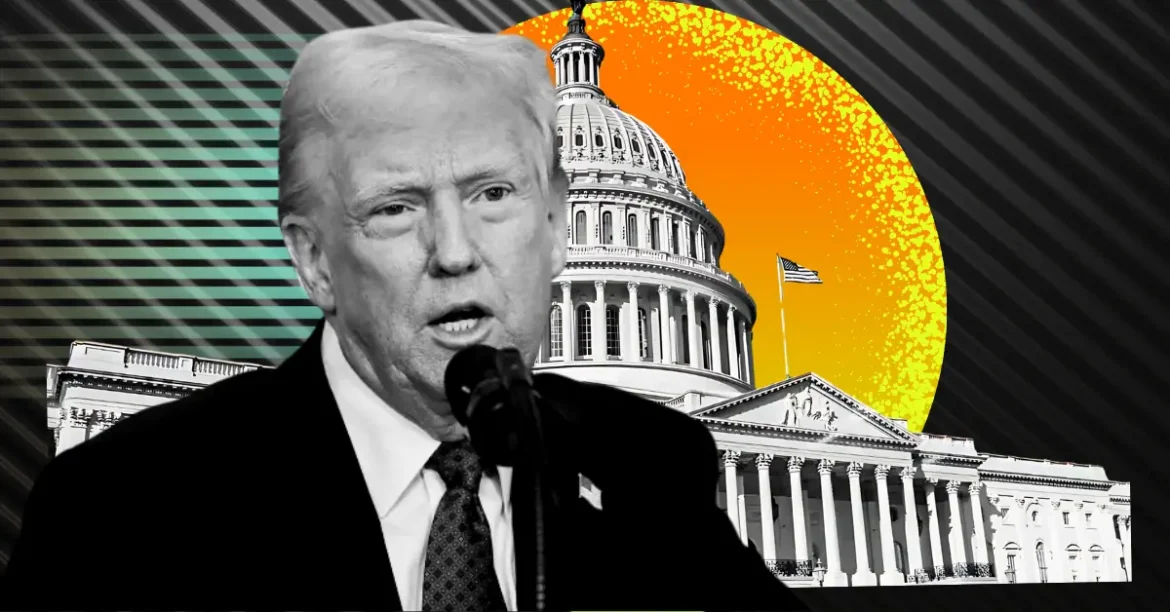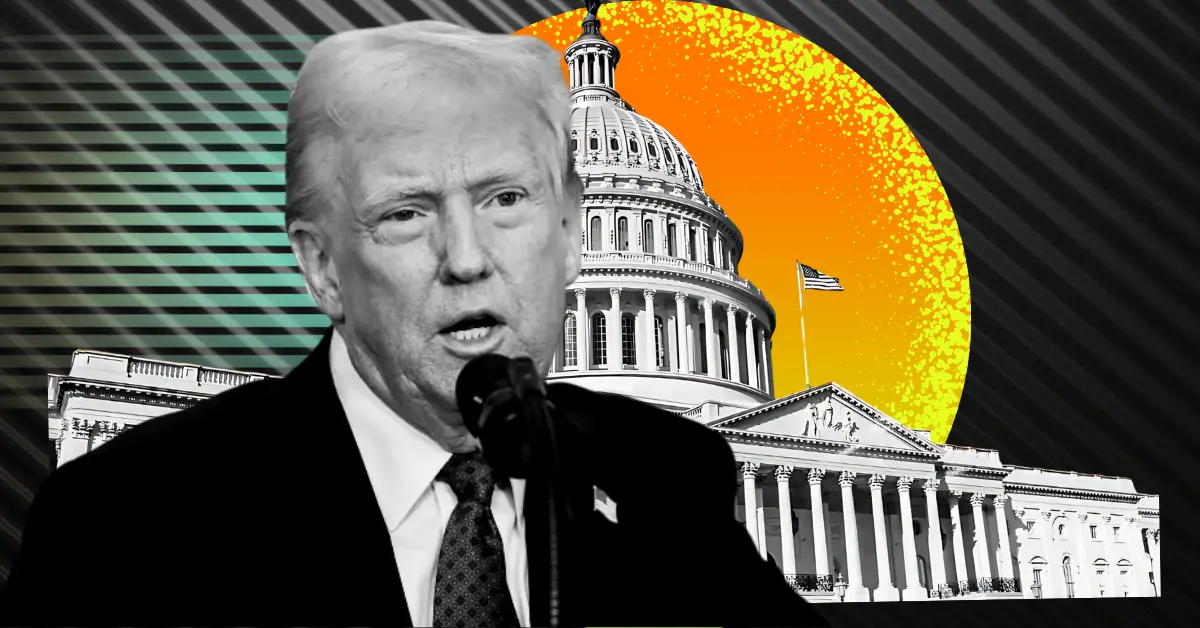The Shifting Sands of Trump’s Crypto Investments: A Deep Dive
The intersection of Donald Trump’s political ambitions and the burgeoning cryptocurrency market has become a focal point of scrutiny. Recent developments reveal a significant shift in the Trump family’s financial involvement with World Liberty Financial (WLF), a decentralized finance (DeFi) project, marked by a series of stake reductions amidst mounting legal and ethical concerns. This report analyzes the timeline of these changes, the pressures driving them, and the potential implications for both the Trump family and the broader crypto landscape.
The Rise of World Liberty Financial and Trump’s Embrace of Crypto
Launched in September 2024, World Liberty Financial quickly became intertwined with the Trump family’s financial interests. Initially, DT Marks DEFI LLC, a company linked to Donald Trump, held a substantial 75% stake in WLF. This ownership was established after the displacement of the original founders, Zak Folkman and Chase Herro, effectively placing the Trump family in control. The timing coincided with a broader shift in Trump’s public stance towards cryptocurrency, signaling a willingness to embrace the digital asset class.
This embrace wasn’t merely rhetorical. The Trump family actively participated in fundraising for WLF, which ultimately raised over $550 million through token sales. Donald Trump personally profited significantly, reporting $57.4 million in earnings from the project between January and December 2024, and disclosing over $600 million in total income from crypto, golf clubs, and licensing ventures. WLF further solidified its position by launching its own stablecoin, USD1, aiming to capitalize on the growing demand for digital currencies pegged to the US dollar.
A Quiet Unwinding: Stake Reductions and Timing
Beginning in January 2025, the Trump family began to quietly reduce its ownership in WLF. The initial reduction saw the stake decrease from 75% to approximately 60%. This was followed by a more substantial divestment, bringing the current holding down to around 40% as of May 2025. These reductions have occurred in stages, without public disclosure, raising questions about transparency and the motivations behind the timing. The most recent 20% reduction occurred within the last 11 days of reporting, indicating a potentially accelerated exit strategy.
The timing of these stake reductions is particularly noteworthy. They coincide with increasing scrutiny from both lawmakers and regulatory bodies, as well as a volatile geopolitical landscape with the Israel-Iran conflict impacting global markets.
Mounting Pressure: Investigations and Ethical Concerns
The Trump family’s involvement with WLF has attracted significant attention from US Senators and government agencies. Senators Elizabeth Warren and Jeff Merkley have voiced concerns about a potential conflict of interest, arguing that the Trump family’s financial stake could influence the administration’s oversight – or lack thereof – of the cryptocurrency industry. They specifically questioned whether political pressure linked to the Trump family’s involvement in WLF may have played a role in the agency’s decision to halt a case involving Justin Sun.
This concern prompted a formal investigation by the US Senate into potential legal violations related to Trump’s crypto ventures, including WLF and the TRUMP meme coin. Furthermore, Representatives Warren and Waters have probed the Securities and Exchange Commission (SEC) regarding potential conflicts of interest related to the Trump family’s crypto company. The Congressional Record documents extensive discussion surrounding WLF and its connection to US policy decisions.
Beyond legal scrutiny, ethical concerns have been raised regarding the nature of WLF’s fundraising and operations. Reports suggest that WLF solicited secret multimillion-dollar payments from foreign firms, blurring the lines between private enterprise and government policy. The scale of the venture – with a valuation exceeding $1.7 billion – and the potential for significant financial gain for the Trump family have amplified these concerns.
Policy Shifts and Potential Benefits
The changing landscape also includes shifts in policy. The Trump administration has signaled a pullback from aggressively prosecuting cryptocurrency fraud, a move that could benefit companies like WLF. Furthermore, Trump’s pro-crypto policies have demonstrably benefited major players in the industry, including Elon Musk and large campaign donors leading crypto firms.
There were even reported discussions between the Trump family and Binance’s US arm regarding potential deals, highlighting the ambition to further integrate WLF into the broader crypto ecosystem. The potential for a $2 billion Middle East crypto deal involving WLF and Binance, utilizing their stablecoin, further underscores the scale of the Trump family’s ambitions in the crypto space.
The Impact of External Factors
The recent escalation of geopolitical tensions, specifically the Israel-Iran conflict, may also be influencing the Trump family’s decision to reduce its stake in WLF. Global market volatility often prompts investors to reassess risk, and the crypto market is particularly susceptible to such fluctuations. Reducing exposure to WLF could be seen as a strategic move to mitigate potential losses in an uncertain economic climate.
A Calculated Retreat?
The series of stake reductions by the Trump family in World Liberty Financial appears to be a calculated response to a confluence of factors: intensifying legal and ethical scrutiny, potential conflicts of interest, and broader market volatility. While the family has reaped substantial financial rewards from the venture thus far, the growing pressure from lawmakers and regulators likely prompted a reassessment of the risks associated with maintaining a significant ownership stake.
The quiet nature of these divestments suggests a desire to minimize negative publicity and avoid further fueling the controversy surrounding Trump’s crypto involvement. However, the timing and scale of the reductions will undoubtedly continue to be scrutinized as investigations proceed and the regulatory landscape for cryptocurrency evolves.
Conclusion: Navigating a Complex Landscape
The Trump family’s journey into the world of cryptocurrency, and their subsequent partial retreat from World Liberty Financial, serves as a compelling case study in the intersection of politics, finance, and emerging technology. The situation highlights the inherent risks and ethical dilemmas associated with high-profile individuals investing in rapidly evolving markets. The unfolding events surrounding WLF will likely have lasting implications for the regulation of cryptocurrency, the scrutiny of political figures’ financial dealings, and the broader public perception of digital assets. The story of WLF is far from over, and its future trajectory will undoubtedly be shaped by the ongoing investigations, policy decisions, and the ever-changing dynamics of the crypto world.





